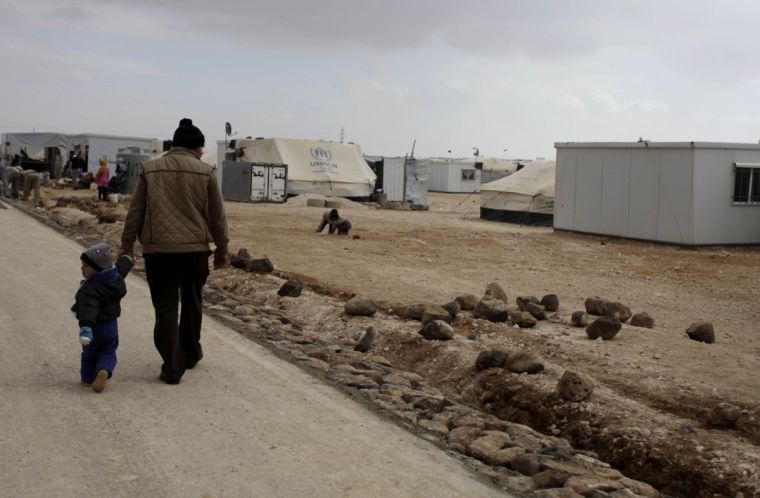West should help Syrians to stay in Syria, says Church leader

Over two million people have fled the country since civil war broke out in 2011, but the leader of Catholics in Syria has urged the international community to increase humanitarian aid rather than offer refuge.
Melkite Greek Catholic Patriarch Gregorios III of Antioch believes that the development of aid programmes that enable Syrians to remain in their homeland, or at least in the Middle Eastern region, will be more beneficial in the long term.
"It is better to help the [destitute] people within the country or the region and not invite them to go outside," he asserted in an interview with Catholic charity Aid to the Church in Need earlier this week.
"There is more that can be done locally – within the region."
He has, however, acknowledged that escalating violence may leave some with little choice but to flee: "Of course, we cannot decide for ourselves what response our people should make ... if they must go, we understand their situation."
The Patriarch's call is timely, as the UK's coalition government revealed a temporary settlement plan for Syrians just this week, after having previously refused to join the UN's resettlement programme.
"As the conflict continues to force millions of Syrians from their homes, we need to make sure we are doing everything we can," said Deputy Prime Minister Nick Clegg.
"Sadly we cannot provide safety for everyone who needs it, but we can reach out to some of those who need it most."
It is not yet clear exactly what this resettlement programme will entail, but the UK will offer refuge to some of Syria's most vulnerable women and children, particularly those at risk of sexual violence, torture victims, the elderly and the disabled.
It is expected that several hundred Syrians in total will be allowed to live in the UK on a temporary basis, continuing what Clegg referred to as Britain's "long and proud tradition of providing refuge to people in times of crisis" in an interview with the BBC.
Patriarch Gregorios has warned of the "danger" that those who leave Syria and are given asylum in the West are unlikely to return to their home country, but Clegg has assured that the UK will not offer permanent residence to refugees.
"They will be here for a certain period of time and what we of course want and I suspect they will want as well... is to return eventually to Syria, when as I think everybody hopes normality finally is restored to the country," he said.
The deputy PM also reasserted the government's commitment to ending the violence in Syria, stating support for the peace talks currently taking place in Switzerland and a belief that "only a political resolution between the Assad regime and Syrian opposition will provide a permanent end to the suffering".
The Geneva II peace summit has so far failed to make any significant headway, despite representatives from either side of the conflict meeting in the same room for the first time since the beginning of the war.
It is hoped that this will mark the beginning of the end of the Syrian crisis, though talks were broken up early yesterday when the two sides refused to agree on the future role of President Bashar al-Assad.
UN mediator Lakhdar Brahimi said in a news conference, "We have not had any breakthrough but we are still at it and this is good enough as far as I am concerned," before announcing that the day's second round of talks between the two parties had been cancelled.
"I will repeat again that these are not easy negotiations and they haven't been easy today, they haven't been...these past days and they will probably not be easy in the coming few days," he said, stressing that the talks would continue until Friday, as originally planned.
"So nobody is walking out. Nobody is running away," he assured.
Patriarch Gregorios has launched an international prayer campaign for Geneva II, urging Christians to pray that a "common vision" would be found between the Assad government and its opposition, and also between the US, Russia and Europe.
"When the big countries are divided, it means the others will be too. What matters is that we have a local, Syrian solution to the problem," he said, before thanking Aid to the Church in need and other organisations for their help with displaced and vulnerable Syrian people.











